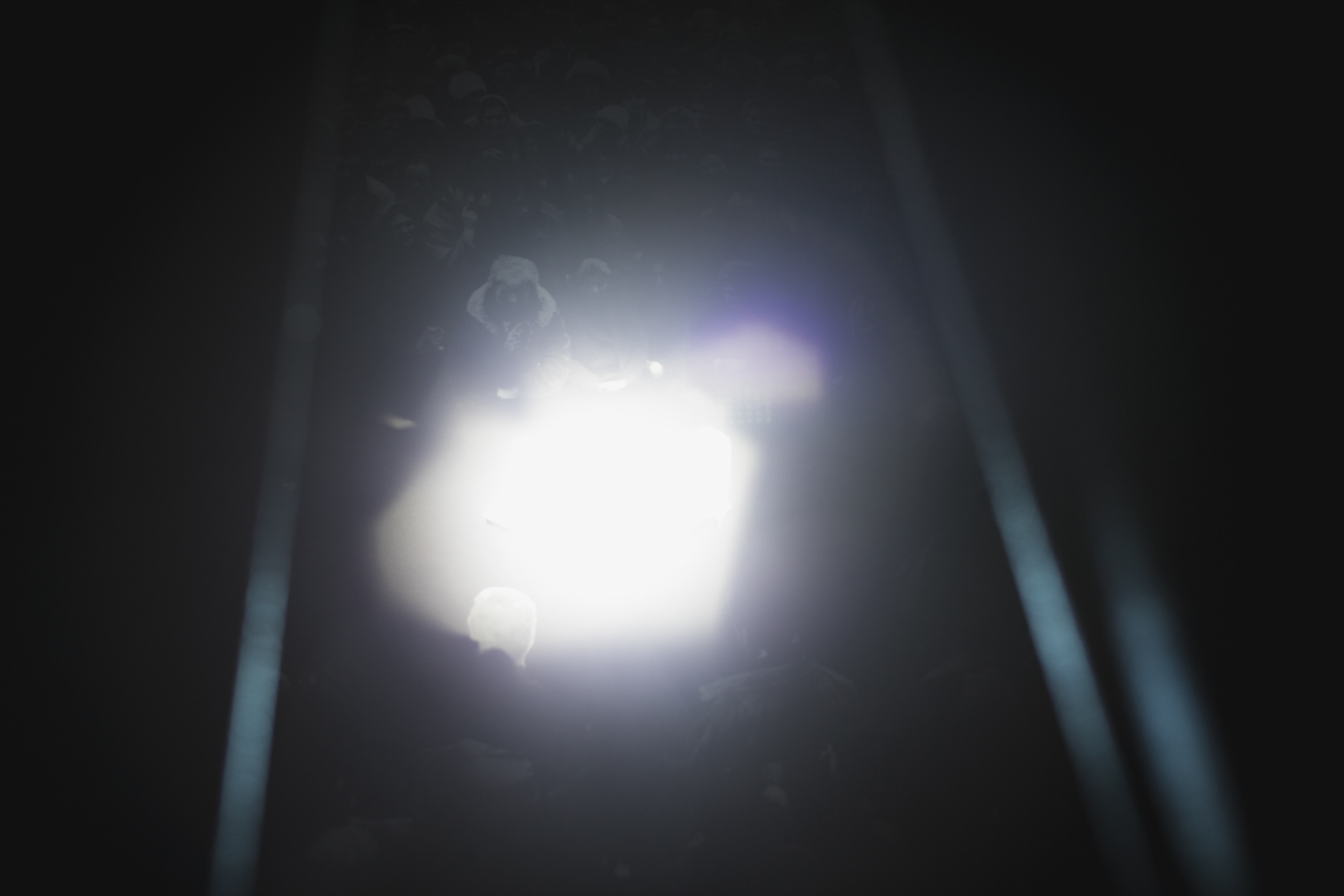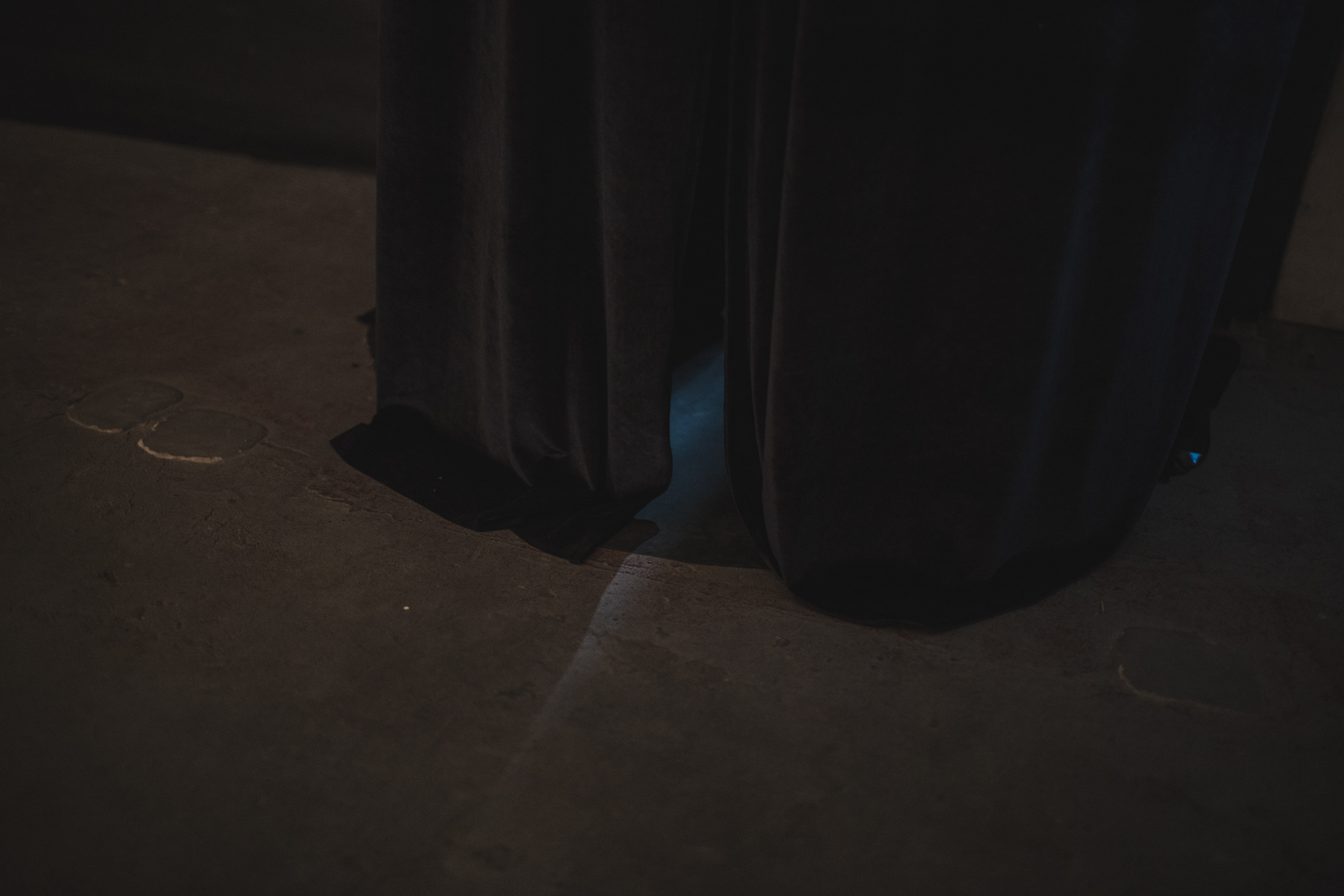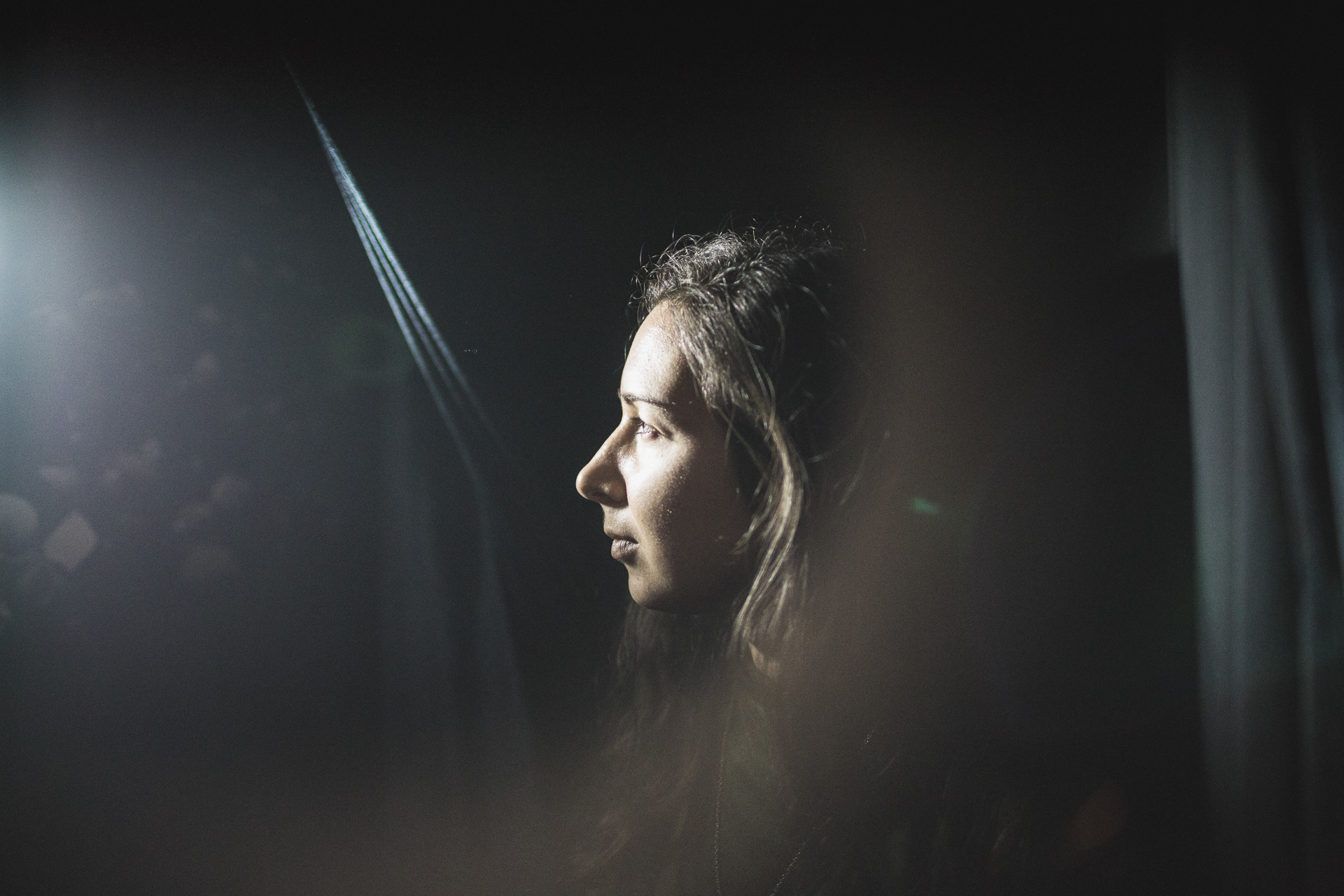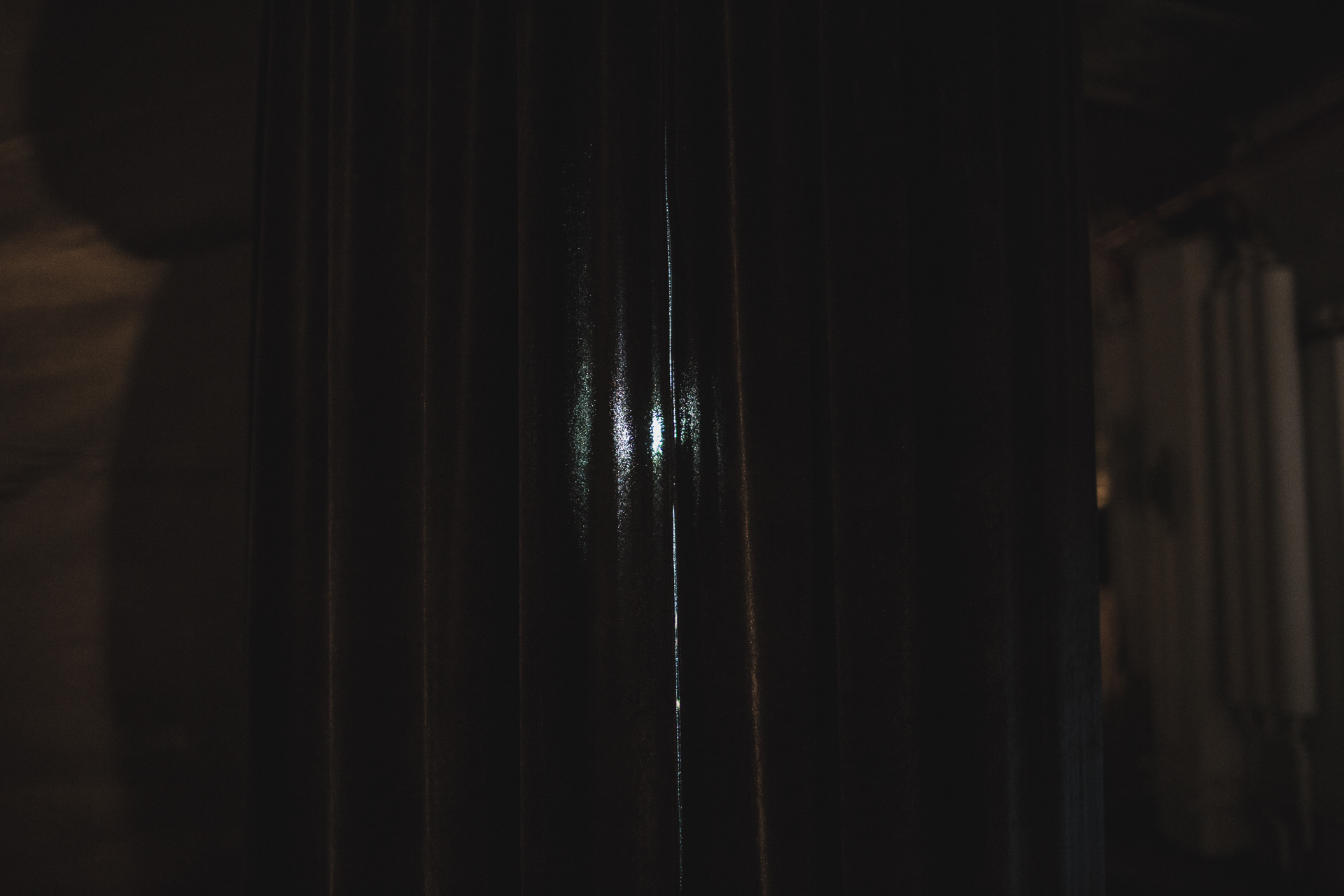“If your eyes hurt, it's because you are looking at a star”.

The installation is built in connection with the topic of the discourse about “Room Spectacles of War” represented at the speed-dating session with artists at the III International Conference “Discourse of the Other as a Pleasure”.
It’s constructed of two dressing rooms, covered with black velvet, one put into another. It’s a place for one. It feels and looks like a theatre stage with heavy curtains and as a confessional at the same time.
When you enter the first curtain, you find yourself in an almost pitch dark space surrounded by black velvet fabric. You can notice a faint light coming through the second curtain.
When you open the second curtains, a strong light blinds you. Its source is placed in the centre of a huge black-and-white photograph. At this photo people are standing in rounds on the street. They are mourning, facing the centre of photo, looking at a spot where the light comes from. It’s a documentary photograph of a war funeral, and one would expect to see a coffin with a dead person, but instead it there is a strong light source.
Also there is a text under your feet: “if your eyes hurt, it’s because you are looking at a star”. Taken from a popular T-shirt it’s situated between curtains and can be seen only if it reflects some light. So at least you need to slightly open the second curtain to see it.
There are different scenarios for the spectator: be hurt and leave, try to see through the light and notice the photograph, look under the feet and decide that it’s a starlight, etc.
But anyway you take with you a little pain and a blind spot in your sight, which would accompany you for a while as a sign of something we can’t see.




Installation view at the group exhibition “Pleiades of Complementary Existences”, APXIV, Moscow, 2017.
Photo: Nikita Kaem.